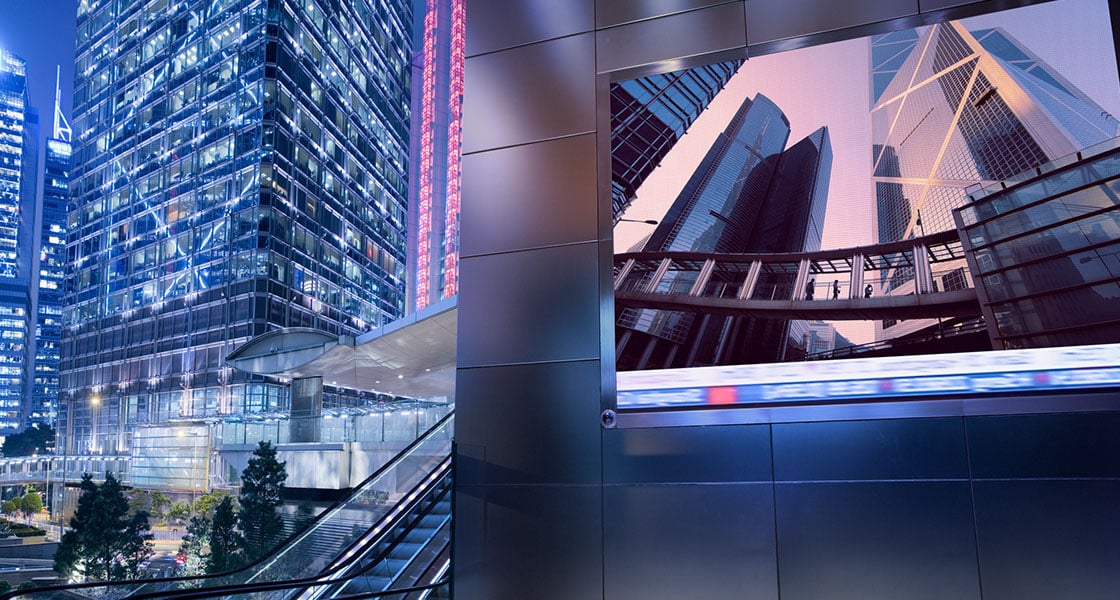Based in Paris, Digitalli is an audiovisual communications company that helps brands build innovative video experiences for retail outlets in France, and other parts of the world. Its customers include the world’s leading luxury and cosmetics brands such as LVMH, L'Oréal, PUIG, and more.
Digitalli offers a full range of services – from initial sketches and creative design, to execution. By layering its technical expertise with its creative resources, the company takes an experimental and innovative approach to building interactive digital signage installations that meet its customers’ objectives.
I spoke to Bertrand Degien, Co-founder, and General Manager of Digitalli, on how the company is leveraging the IoT to remotely control and monitor digital signage installations at retail outlets in Europe, and other parts of the world.
Can you give us a brief overview of your display solutions and how brands use them?
We offer a full service and customized offer to our customers. This includes understanding their unique requirements, and providing consulting services on what is the best digital signage solution that fits their needs. We help brands deploy their marketing campaigns at retail outlets, including digital signage.
Why did you want to connect your equipment?
In most stores, the use of the internet is confined to point of sale systems to enable electronic payment. For security reasons, the internet on the store’s premises is not used for other applications – doing so would require multiple internal approvals and security clearances. Generally, stores do not like to grant permission to let any other kind of brands connect to the internet because they would likely receive a flood of similar requests that may trigger bandwidth issues.
Given these constraints, Digitalli has chosen cellular connectivity to connect its equipment. Cellular connectivity is critical in remotely monitoring and maintaining our equipment – it gives Digitalli the ability to update video content on its equipment across thousands of stores, without needing to rely on the stores’ internet.
Why did Digitalli choose Sierra Wireless as its connectivity partner?
Initially, Digitalli had considered using standard 4G equipment and cellular connectivity from operators. But soon, we realized that we needed a more robust router, with advanced remote monitoring capabilities. Digitalli contacted Sphinx, which is a renowned reseller of robust industrial IoT solutions. Sphinx introduced us to Sierra Wireless’ routers; subsequently, we also discovered their Smart Connectivity offering.
Sierra brought the right set of technologies to the table: a robust router; a good management platform; and Smart Connectivity, which enables us to access the best available cellular network regardless of what part of the world the store is located in. The combination of both hardware and connectivity made it easier for Digitalli to provide best-in-class digital signage solutions in stores where the internet was not available.
Digitalli has now decided to switch to Sierra’s Ready-to-Connect routers that come with an integrated SIM card. Can you explain the reasons behind your decision?
Digitalli started its deployment with Sierra’s LX40 routers and Smart Connectivity – both products had their own activation process and management platform. Digitalli is now migrating to Sierra’s Ready-to-Connect routers, which are already embedded with Smart Connectivity.
Having a single platform to activate and manage both the hardware and connectivity component makes our implementation significantly easier. Being able to manage the devices, cellular subscription and billing from a single platform is a huge efficiency gain.
It also simplifies our procurement process: essentially, Digitalli only needs to procure a single order from Sierra Wireless for both the router and the connectivity, and we can avoid the logistical nightmare of having to place multiple orders with different vendors.
How many units of equipment has Digitalli connected so far?
As of today, 250 screens are connected via cellular in France. As Europe recovers from the pandemic, we will connect our equipment at stores in Germany, the UK, and Switzerland. There are also plans to extend the deployment to Asia, particularly in China, where luxury brands have a huge market.
The cellular data consumption can go up to 2 GB per month for large stores that are updating their video content monthly, but the average is a bit less as smaller size stores only update their video content quarterly.
Could you tell us more about the role that Sphinx played in this project?
Digitalli contacted Sphinx to get their advice on what solution to use as they are renowned for providing Industrial IoT solutions.
Sphinx is running the logistics, managing forecast, building stock, shipping product, alongside providing best-in-class customer support in close coordination with Sierra Wireless.
Clément Gutierres, Sales Director at Sphinx said “Sphinx is very pleased to support a complete industrial IoT value chain that serves Digitalli and helps to make their application a reality. Sierra Wireless’ value proposition was the perfect match, and allows a more rapid implementation of the IoT business model that Digitalli had in mind.”
For further information on Sierra Wireless’ Ready-to-Connect routers, please visit here.

